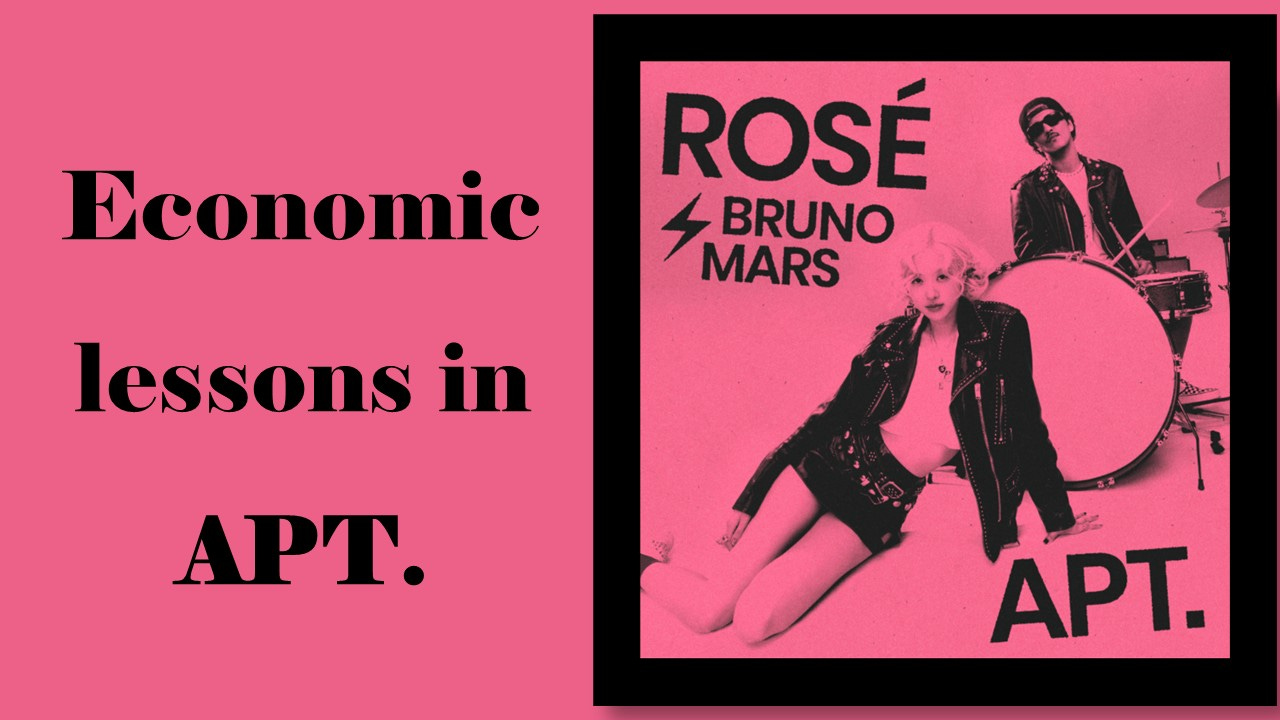Living for the Moment: What does the Rosé and Bruno Mars Hit Song APT. Teach Us About Discounting?
Economic Lessons are Everywhere!
Economics has a way of sneaking into the most unexpected corners of life—sometimes even into a pop hit inspired by a Korean drinking game. In APT., Rosé and Bruno Mars sing about partying, indulging, and enjoying themselves tonight, even if it means tomorrow will be a little rougher. On the surface, it’s just a fun, catchy anthem. But dig a little deeper, and you’ll find a fundamental economic question: how much should we value or discount the future?
Before we dive in, for those who love K-Pop stars like Rosé, be sure to check out this paper coauthored by Jadrian Wooten, Wayne Geerling, and Angelito Calma for more economic lessons from K-Pop songs!
The Game and the Song
The name APT. comes from a popular Korean drinking game. Rosé and Bruno Mars celebrate the game, and the thrill of the present, where the party is loud and the drinks are flowing. But there is a key lyric that economists immediately note: “sleep tomorrow but tonight go crazy”. The choice here is to enjoy the present at the expense of the future.
Watch the song with economic lessons embedded here:
The Economics of Discounting
Discounting is the idea that people value the present more than the future. Economists often use it to explain why we procrastinate, why we overspend, and why saving money can be so hard. It is also used by government agencies in policy-making.
One classic question that might get at your preferences for discounting: would you rather have $100 today or $110 a year from now? Even though the future option is worth more, many people would choose the money today. Why? Because the present feels more certain and more satisfying. That is discounting at work.
In APT., the characters are doing the same thing—choosing tonight’s fun despite knowing tomorrow’s consequences. Whether it’s a hangover, regret, or just fatigue, future happiness is traded away for present pleasure.
Why This Matters
APT. illustrates a classic example of tradeoffs. The tension between “fun now” and “responsibility later” is one of the most common struggles in life. We might not all play APT. as a drinking game, but we all face tradeoffs. Staying out late even when you have an early meeting, buying something instead of paying down debt, or putting off that dentist appointment—each is a decision that discounts the future.



I have heard this song on the radio and had no idea what it was about! Thank you for looking at this one more closely.